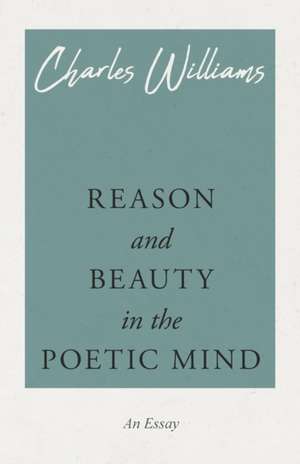Reason and Beauty in the Poetic Mind
Autor Charles Williamsen Limba Engleză Paperback – 13 dec 2018
| Toate formatele și edițiile | Preț | Express |
|---|---|---|
| Paperback (2) | 124.83 lei 3-5 săpt. | +10.46 lei 7-13 zile |
| WIPF & STOCK PUBL – 29 feb 2008 | 124.83 lei 3-5 săpt. | +10.46 lei 7-13 zile |
| White Press – 13 dec 2018 | 161.13 lei 38-44 zile |
Preț: 161.13 lei
Nou
Puncte Express: 242
Preț estimativ în valută:
30.83€ • 31.81$ • 25.73£
30.83€ • 31.81$ • 25.73£
Carte tipărită la comandă
Livrare economică 22-28 martie
Preluare comenzi: 021 569.72.76
Specificații
ISBN-13: 9781528708524
ISBN-10: 1528708520
Pagini: 196
Dimensiuni: 140 x 216 x 10 mm
Greutate: 0.25 kg
Editura: White Press
ISBN-10: 1528708520
Pagini: 196
Dimensiuni: 140 x 216 x 10 mm
Greutate: 0.25 kg
Editura: White Press
Notă biografică
Author and scholar Charles Williams (1886-1945) joined, in 1908, the staff of the Oxford University Press, the publishing house in which he worked for the rest of his life. Throughout these years, poetry, novels, plays, biographies, history, literary criticism, and theology poured from his pen. At the beginning of the Second World War the publishing house was evacuated to Oxford where, in addition to his own writing and his editorial work for the Press, he taught in the University.
